- Home
- John Kendrick Bangs
Annals of the Poor Page 13
Annals of the Poor Read online
Page 13
PART II.
There is no illustration of the nature and character of the Redeemer'skingdom on earth which is more grateful to contemplation, than that ofthe shepherd and his flock. Imagination has been accustomed, from ourearliest childhood, to wander amongst the fabled retreats of the Arcadianshepherds. We have probably often delighted ourselves in our own nativecountry, by witnessing the interesting occupation of the pastoral scene.The shepherd, tending his flock on the side of some spacious hill, or inthe hollow of a sequestered valley; folding them at night, and guardingthem against all danger; leading them from one pasture to another, or forrefreshment to the cooling waters. These objects have met and gratifiedour eyes, as we travelled through the fields, and sought out creation'sGod, amidst creation's beauties. The poet and the painter have each lenttheir aid to cherish our delight in these imaginations. Many adescriptive verse has strengthened our attachment to the pastoral scene,and many a well-wrought picture has occasioned it to glow like a realityin our ideas.
But far more impressively than these causes can possibly affect, has theword of God endeared the subject to our hearts, and sanctified it toChristian experience. Who does not look back with love and veneration tothose days of holy simplicity, when patriarchs of the church of God livedin tents and watched their flocks? With what a strength and beauty ofallusion do the prophets refer to the intercourse between the shepherdand flock for an illustration of the Saviour's kingdom on earth! ThePsalmist rejoiced in the consideration that the Lord was his Shepherd,and that therefore he should not want. The Redeemer himself assumed thisinteresting title, and declared that "his sheep hear his voice, he knowsthem, and they follow him, and he gives unto them eternal life."
Perhaps at no previous moment was this comparison ever expressed sopowerfully, as when his risen Lord gave the pastoral charge to the latelyoffending but now penitent disciple, saying, "Feed my sheep." Everyprinciple of grace, mercy, and peace, met together on that occasion.Peter had thrice denied his Master: his Master now thrice asked him,"Lovest thou me?" Peter each time appealed to his own, or to his Lord'sconsciousness of what he felt within his heart. As often Jesus commitedto his care the flock which he had purchased with his blood. And thatnone might be forgotten, he not only said, "Feed my sheep," but "Feed mylambs," also.
May every instructor of the young keep this injunction enforced on hisconscience and affections,--I return to little Jane.
It was about fifteen months from the first period of her attendance on mySaturday school, when I missed her from her customary place. Two orthree weeks had gone by, without my making any particular inquiryrespecting her. I was at length informed that she was not well; butapprehending no peculiar cause for alarm, nearly two months passed awaywithout any further mention of her name being made.
At length a poor old woman in the village, of whose religious dispositionI had formed a good opinion, came and said to me, "Sir, have you notmissed Jane S--- at your house on Saturday afternoons?"
"Yes," I replied, "I believe she is not well."
"Nor ever will be, I fear," said the woman.
"What! do you apprehend any danger in the case?"
"Sir, she is very poorly indeed, and I think is in a decline. She wantsto see you, sir; but is afraid you would not come to see such a pooryoung child as she is."
"Not go where poverty and sickness may call me? How can she imagine so?At which house does she live?"
"Sir, it is a poor place, and she is ashamed to ask you to come there.Her near neighbours are noisy wicked people, and her own father andmother are strange folks. They all make game at poor Jenny because shereads her Bible so much."
"Do not tell me about poor places and wicked people: that is the verysituation where a minister of the gospel is called to do the most good. Ishall go to see her; you may let her know my intention."
"I will, sir; I go in most days to speak to her, and it does one's heartgood to hear her talk."
"Indeed!" said I, "what does she talk about?"
"Talk about, poor thing! why, nothing but good things, such as the Bible,and Jesus Christ, and life, and death, and her soul, and heaven, andhell, and your discourses, and the books you used to teach her, sir. Herfather says he'll have no such godly things in his house; and her ownmother scoffs at her, and says she supposes Jenny counts herself betterthan other folks. But she does not mind all that. She will read herbooks, and then talk so pretty to her mother, and beg that she wouldthink about her soul."
"The Lord forgive me," thought I, "for not being more attentive to thispoor child's case!" I seemed to feel the importance of infantineinstruction more than ever I had done before, and felt a rising hope thatthis girl might prove a kind of first-fruits of my labours.
I now recollected her quiet, orderly, diligent attendance on our littleweekly meetings; and her marked approbation of the epitaph, as related inmy last paper, rushed into my thoughts. "I hope, I really hope," said I,"this dear child will prove a true child of God. And if so, what a mercyto her, and what a mercy for me!"
{Little Jane's Cottage: p137.jpg}
The next morning I went to see the child. Her dwelling was of thehumblest kind. It stood against a high bank of earth, which formed asort of garden behind it. It was so steep, that but little would grow init; yet that little served to show not only, on the one hand, the povertyof its owners, but also to illustrate the happy truth, that even in theworst of circumstances the Lord does make a kind provision for thesupport of his creatures. The front aspect of the cottage was chieflyrendered pleasing by a honeysuckle, which luxuriantly climbed up thewall, enclosing the door, windows, and even the chimney, with its twiningbranches. As I entered the house-door, its flowers put forth a verysweet and refreshing smell. Intent on the object of my visit, I at thesame moment offered up silent prayer to God, and entertained a hope, thatthe welcome fragrance of the shrub might be illustrative of thatall-prevailing intercession of a Redeemer, which I trusted was, in thecase of this little child, as "a sweet-smelling savour" to her heavenlyFather. The very flowers and leaves of the garden and field areemblematical of higher things, when grace teaches us to make them so.Jane was in bed upstairs. I found no one in the house with her exceptthe woman who had brought me the message on the evening before. Theinstant I looked on the girl, I perceived a very marked change in hercountenance: it had acquired the consumptive hue, both white and red. Adelicacy unknown to it before quite surprised me, owing to the alterationit produced in her look. She received me first with a very sweet smile,and then instantly burst into a flood of tears, just sobbing out,--
"I am so glad to see you, sir!"
"I am very much concerned at your being so ill, my child, and grievedthat I was not sooner aware of your state. But I hope the Lord designsit for your good." Her eye, not her tongue, powerfully expressed, "Ihope and think he does."
"Well, my poor child, since you can no longer come to see me, I will comeand see you, and we will talk over the subjects which I have been used toexplain to you."
"Indeed, sir, I shall be so glad!"
"That I believe she will," said the woman; "for she loves to talk ofnothing so much as what she has heard you say in your sermons, and in thebooks you have given her."
"Are you really desirous, my dear child, to be a true Christian?"
"Oh, yes, yes, sir; I am sure I desire that above all things."
I was astonished and delighted at the earnestness and simplicity withwhich she spoke these words.
"Sir," added she, "I have been thinking, as I lay on my bed for manyweeks past, how good you are to instruct us poor children; what mustbecome of us without it!"
"I am truly glad to perceive that my instructions have not been lost uponyou, and pray God that this your present sickness may be an instrument ofblessing in his hands to prove, humble, and sanctify you. My dear child,you have a soul, an immortal soul to think of; you remember what I haveoften said to you about the value of a soul: 'What shall it profit a man,if he
gain the whole world, and lose his own soul?'"
"Yes, sir, I remember well you told us, that when our bodies are put intothe grave, our souls will then go either to the good or the bad place."
"And to which of these places do you think that, as a sinner in the sightof God, you deserve to go?"
"To the bad one, sir."
"What! to everlasting destruction!"
"Yes, sir."
"Why so?"
"Because I am a great sinner."
"And must all great sinners go to hell?"
"They all deserve it; and I am sure I do."
"But is there no way of escape? Is there no way for a great sinner to besaved?"
"Yes, sir, Christ is the Saviour."
"And whom does he save?"
"All believers."
"And do you believe in Christ yourself?"
"I do not know, sir; I wish I did; but I feel that I love him."
"What do you love him for?"
"Because he is good to poor children's souls like mine."
"What has he done for you?"
"He died for me, sir; and what could he do more?"
"And what do you hope to gain by his death?"
"A good place when I die, if I believe in him, and love him."
"Have you felt any uneasiness on account of your soul?"
"Oh, yes, sir, a great deal. When you used to talk to us children onSaturdays, I often felt as if I could hardly bear it, and wondered thatothers could seem so careless. I thought I was not fit to die. Ithought of all the bad things I had ever done and said, and believed Godmust be very angry with me; for you often told us, that God would not bemocked; and that Christ said, if we were not converted, we could not goto heaven. Sometimes I thought I was so young it did not signify: andthen, again, it seemed to me a great sin to think so; for I knew I wasold enough to see what was right and what was wrong; and so God had ajust right to be angry when I did wrong. Besides, I could see that myheart was not right; and how could such a heart be fit for heaven?Indeed, sir, I used to feel very uneasy."
"My dear Jenny, I wish I had known all this before. Why did you nevertell me about it?"
"Sir, I durst not. Indeed, I could not well say what was the matter withme: and I thought you would look upon me as very bold, if I had spokeabout myself to such a gentleman as you: yet I often wished that you knewwhat I felt and feared. Sometimes, as we went away from your house, Icould not help crying; and then the other children laughed and jeered atme, and said I was going to be very good, they supposed, or at least tomake people think so. Sometimes, sir, I fancied you did not think sowell of me as of the rest, and that hurt me; yet I knew I deserved noparticular favour, because I was the chief of sinners."
"My dear, what made St. Paul say he was chief of sinners? In what verseof the Bible do you find this expression, 'the chief of sinners;' can yourepeat it?"
"'This is a faithful saying, and worthy of all acceptation, that ChristJesus came into the world to save sinners;'--is not that right, sir?"
"Yes, my child, it is right; and I hope that the same conviction whichSt. Paul had at that moment has made you sensible of the same truth.Christ came into the world to save sinners: my dear child, remember nowand for ever more, that Christ came into the world to save the chief ofsinners."
"Sir, I am so glad he did. It makes me hope that he will save me, thoughI am a poor sinful girl. Sir, I am very ill, and I do not think I shallever get well again. I want to go to Christ if I die."
"Go to Christ while you live, my dear child, and he will not cast youaway when you die. He that said, 'Suffer little children to come untome,' waits to be gracious to them, and forbids them not."
"What made you first think so seriously about the state of your soul?"
"Your talking about the graves in the churchyard, and telling us how manyyoung children were buried there. I remember you said, one day, neartwelve months ago, 'Children! where will you be a hundred years hence?Children! where do you think you shall go when you die? Children! if youwere to die to-night, are you sure you should go to Christ and be happy?'Sir, I never shall forget your saying, 'Children,' three times togetherin that solemn way."
"Did you ever before that day feel any desire about your soul?"
"Yes, sir; I think I first had that desire almost as soon as you began toteach us on Saturday afternoons; but on that day I felt as I never didbefore. I shall never forget it. All the way as I went home, and allthat night, these words were in my thoughts: 'Children! where do youthink you shall go when you die?' I thought I must leave off all my badways, or where shall I go when I died?"
"And what effect did these thoughts produce in your mind?"
"Sir, I tried to live better, and I did leave off many bad ways; but themore I strove, the more difficult I found it, my heart seemed so hard:and then I could not tell any one my case."
"Could not you tell it to the Lord, who hears and answers prayers?"
"My prayers (here she blushed and sighed) are very poor at the best, andat that time I scarcely knew how to pray at all as I ought. But I didsometimes ask the Lord for a better heart."
There was a character in all this conversation which marked a trulysincere and enlightened state of mind. She spoke with all the simplicityof a child, and yet the seriousness of a Christian. I could scarcelypersuade myself that she was the same girl I had been accustomed to seein past time. Her countenance was filled with interesting affections,and always spoke much more than her tongue could utter. At the same timeshe now possessed an ease and liberty in speaking, to which she hadformerly been a stranger: nevertheless, she was modest, humble, andunassuming. Her readiness to converse was the result of spiritualanxiety, not childish forwardness. The marks of a Divine change were tooprominent to be easily mistaken; and in this very child, I, for the firsttime, witnessed the evident testimonies of such a change. Howencouraging, how profitable to my own soul!
"Sir," continued little Jane, "I had one day been thinking that I wasneither fit to live nor die: for I could find no comfort in this world,and I was sure I deserved none in the other. On that day you sent me tolearn the verse on Mrs. B---'s headstone, and then I read that on the onenext to it."
"I very well remember it, Jenny; you came back, and repeated them both tome."
"There were two lines in it which made me think and meditate a greatdeal."
"Which were they?"
"'Hail Glorious gospel! heavenly light, whereby We live with comfort, and with comfort die.'
I wished that glorious gospel was mine, that I might live and die withcomfort; and it seemed as if I thought it would be so. I never felt sohappy in all my life before. The words were often in my thoughts,--
'Live with comfort, and with comfort die.'
Glorious gospel, indeed! I thought."
"My dear child, what is the meaning of the word gospel?"
"Good news."
"Good news for whom?"
"For wicked sinners, sir."
"Who sends this good news for wicked sinners?"
"The Lord Almighty."
"And who brings this good news?"
"Sir, _you_ brought it to _me_."
Here my soul melted in an instant, and I could not repress the tearswhich the emotion excited. The last answer was equally unexpected andaffecting. I felt a father's tenderness and gratitude for a new andfirst-born child.
Jane wept likewise.
After a little pause she said,--
"O sir! I wish you would speak to my father, and mother, and littlebrother; for I am afraid they are going on very badly."
"How so?"
"Sir, they drink, and swear, and quarrel, and do not like what is good;and it does grieve me so, I cannot bear it. If I speak a word to themabout it, they are very angry, and laugh, and bid me be quiet, and notset up for their teacher. Sir, I am ashamed to tell you this of them,but I hope it is not wrong; I mean it for their good."
"I wish your prayers and
endeavours for their sake may be blessed; I willalso do what I can."
I then prayed with the child, and promised to visit her constantly.
As I returned home, my heart was filled with thankfulness for what I hadseen and heard. Little Jane appeared to be a first-fruits of myparochial and spiritual harvest. This thought greatly comforted andstrengthened me in my ministerial prospects.
My partiality to the memory of little Jane will probably induce me to laysome further particulars before the reader.

 The Genial Idiot: His Views and Reviews
The Genial Idiot: His Views and Reviews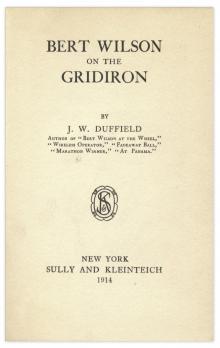 Bert Wilson, Marathon Winner
Bert Wilson, Marathon Winner The Enchanted Typewriter
The Enchanted Typewriter The Lance of Kanana: A Story of Arabia
The Lance of Kanana: A Story of Arabia Coffee and Repartee
Coffee and Repartee The Idiot at Home
The Idiot at Home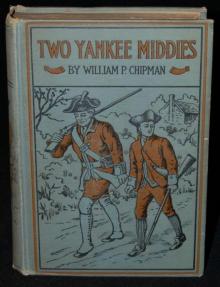 Budd Boyd's Triumph; or, The Boy-Firm of Fox Island
Budd Boyd's Triumph; or, The Boy-Firm of Fox Island The Pursuit of the House-Boat
The Pursuit of the House-Boat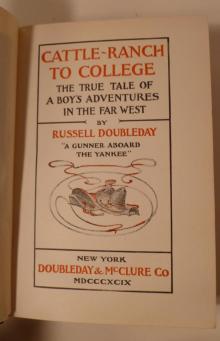 Cattle-Ranch to College
Cattle-Ranch to College Half-Hours with Jimmieboy
Half-Hours with Jimmieboy Bikey the Skicycle and Other Tales of Jimmieboy
Bikey the Skicycle and Other Tales of Jimmieboy Toppleton's Client; Or, A Spirit in Exile
Toppleton's Client; Or, A Spirit in Exile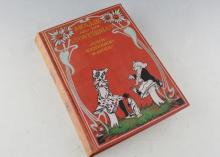 Mollie and the Unwiseman
Mollie and the Unwiseman The Inventions of the Idiot
The Inventions of the Idiot Andy the Acrobat
Andy the Acrobat In Camp With A Tin Soldier
In Camp With A Tin Soldier Angel over the Right Shoulder
Angel over the Right Shoulder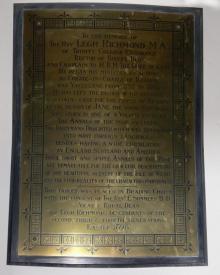 Annals of the Poor
Annals of the Poor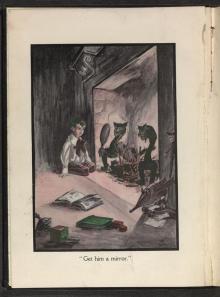 Andiron Tales
Andiron Tales Andy at Yale
Andy at Yale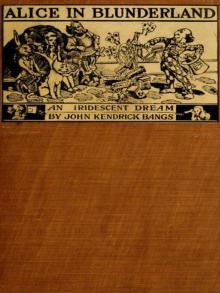 Alice In Blunderland
Alice In Blunderland